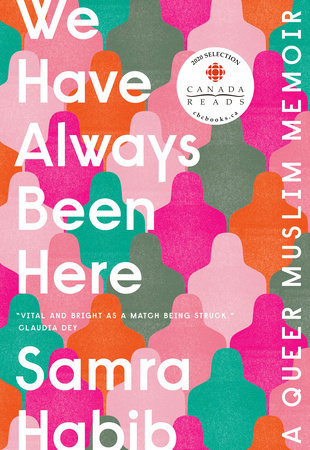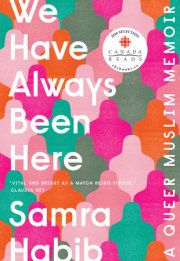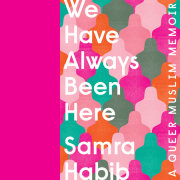Sonia and I were the same age and instantly liked each other. She had a mischievous way about her that pulled me in. She always smelled of oranges, her fingers sticky from sucking on slices of the fruit as the juices dripped down her chin and hands. She left a trail of orange peels everywhere she went. I was in awe of her pin-straight hair that could do anything she wanted it to but mostly rested on her shoulders, two vertical lines framing her gamine face. Mine was curly and unruly, and my mother insisted on having it fashioned into an unflattering bowl cut. Since I was no longer allowed to go outside or visit friends without my parents chaperoning, much of our playing happened at our house. Sonia never asked why—I just let her believe it was because my parents were extremely religious. When we weren’t building blanket forts, we spent afternoons on the veranda flashing everyone who walked by, spreading our legs wide open and exposing our vaginas, breaking out into peals of laughter with each look of horror we received.
Some days, Sonia wanted to play doctor. She’d pull down her pants and ask me to give her an injection, and I’d pretend to inject her warm skin with a piece of chalk, its tip pointy and startlingly cold. The chalky imprint of my hand would remain on her bum as she pulled up her pants, laughing. We’d often play in the musty, abandoned room on the second floor above our unit that was full of discarded furniture and yards of fabric my mother had purchased to bring to Sonia’s mother. One day, when I suggested we tell each other stories instead of playing doctor, she began to tell me a dirty tale of two lovers, Idris and Sahar, who undressed in front of each other—but she abruptly ended the story just when my heart started racing with anticipation. I needed to know what happened next.
“I have to go,” she blurted. “Next time!” She patted my mop of curls and grabbed her backpack, flashing me an impish smile on her way out the door.
For days, I waited for her to come back and finish the story. A week went by. Unable to bear the suspense any longer, I told my parents I was going to visit Sonia, knowing full well I wasn’t allowed to venture out unaccompanied. When they prodded, I recounted the whole sordid story. As expected, my parents told Sonia’s parents that she wasn’t allowed to visit our house ever again.
It was nearing four o’clock and my mother still had to pick up a cake before the guests arrived and my dad came home from work. She asked Pinky to keep an eye on my sisters and me so that she could run some errands and swing by the bakery. She knew how much I loved the dense, spongy cake soaked in rosewater and layered with thick cream and ripe fruit. As she opened the door, the smell of burning tires infiltrated the hallway. Without giving it much thought, she headed out the door, the smell lingering in the air. After all, the birthday would be incomplete without the cake.
The bakery was only ten minutes away, so we were worried when an hour went by and neither my mother nor my father had come home. When my mother finally showed up, she had with her Osman and his mother, along with five other Shia families from the street. Sunni and Shia conflicts had erupted throughout Lahore, and my mother had gathered this band of strangers together and offered temporary refuge from the rioting in the streets. As Ahmadis, we were the only family in the neighbourhood to be spared the wrath of Sunni extremists. For once, the target wasn’t us.
The cause of the conflict goes back some fourteen hundred years. Immediately following the death of Prophet Muhammad, the two sects clashed over who his successor should be. Shias believe that Ali, the Prophet’s cousin and son-in-law, was the rightful successor, whereas Sunnis argue that it was Abu Bakr, the Prophet’s trusted advisor. Centuries of bloodshed have followed. Shias claim that Sunnis have received preferential treatment from the Pakistani government since 1948, soon after Pakistan was founded, and that their freedom of speech is consistently threatened. Around the time of my birthday, things had gotten particularly violent after the assassination of Arif Hussain Hussaini, founding leader of Tehrik-e-Jafaria, a religious organization that represented the Shias.
Amid all the mayhem, I marvelled at how my mother had managed to find a cake when all the shops were either closed or vandalized. I was even more shocked that she had made it home safe, unaffected by the tear gas or the rioters who were setting fire to everything in sight, the thick fumes permeating our house through the roofless courtyard where everyone had gathered. To a seven-year-old, it seemed the world was coming to an end. If my mother was panicked that my father was still not home, she certainly didn’t let it show.
I looked at Osman, who had taken refuge under his mother’s arm and was pressing his nose against it. There were other children, too—some my age or younger, some old enough to require a burka to hide the curves of their bodies. I couldn’t help feeling relieved that this time it wasn’t us. But the fear I witnessed was intensely familiar. Who belonged if none of us did? I had never felt as close to Shias as I did that day.
My mother, perhaps opting for a distraction, removed the wrapping from the cake and placed it on the dining table. Pinky heated a pot of goat’s milk for chai and poured it into eight terracotta cups. The smell of cardamom temporarily replaced the pungent odour of burning cars.
When the phone rang, my mother almost dropped the tray of pakoras and ran toward it. “
Kee haal hai?”—How are you?—she asked ironically, knowing my father was probably plotting how to get home safely while police had blocked off access to our street. She spoke in Punjabi, the language my parents used when they didn’t want us to know what they were talking about, not realizing we’d picked it up over the years.
We were startled by a flurry of loud knocks on the front door and the voices on the other side demanding that we open it. We all knew that the men outside were after the Shias hiding in our house. My mother hung up the phone and, with the help of the other women, pushed a heavy cupboard full of china and ceramics in front of the door. As the thumping persisted, she silently lit the candles on the cake, one for each of my seven years. Taking our cue from her calm demeanour, we all gathered around the table as if nothing out of the ordinary was happening. After a loud chorus of “Happy Birthday” drowned out the noise in the background, I blew out the candles. My mother carefully plated each dish with an equal slice of cake, pakoras, and chaat and handed them to everyone in our house.
Soon it was time for Maghrib prayer. Pinky and the other women lined the concrete floor with bedsheets, and we Ahmadis prayed with our Shia neighbours for the first time, our bodies so close there was barely space between us. My eyes wandered to the different placement of hands on the chests of our Shia guests, placed higher than I was accustomed to. It struck me that despite our differences, we were all terrified of the same people.
The knocks eventually stopped and we wondered if the riots had too. Then we heard a heavy thud on the roof. We all lifted our heads in panic, and mothers tightly clutched their children. Then my dad emerged from the top floor, climbing down the stairs to the courtyard. Eager to unite with us, he had scaled the wall of a house at the end of our street and jumped between the rooftops until he reached ours. I had never in my life been happier to see him.
Copyright © 2019 by Samra Habib. All rights reserved. No part of this excerpt may be reproduced or reprinted without permission in writing from the publisher.




